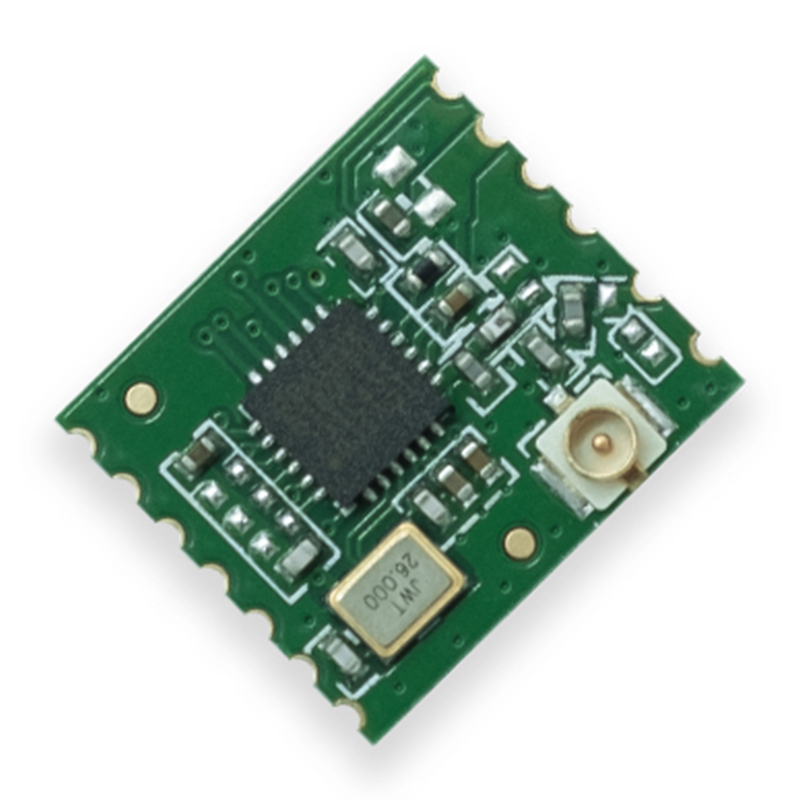When it comes to wireless connectivity, the terms "Wi-Fi module" and "router" often come up. While they may seem similar, there are distinct differences between these two devices. This article aims to shed light on the dissimilarities and highlight the unique roles played by each of them in the realm of wireless communication.

A Wi-Fi module, also known as a Wi-Fi adapter or wireless module, is a component that allows a device to connect to a wireless network. It is usually small and built into devices like laptops, tablets, smartphones, and IoT devices. The primary function of a Wi-Fi module is to receive and transmit wireless signals to establish a network connection.
On the other hand, a router is a networking device that provides Internet access to multiple devices by forwarding data packets between computer networks. It acts as a central hub, allowing multiple Wi-Fi modules and other devices to connect to the Internet simultaneously within a localized network. Routers also facilitate communication between devices within the network, enabling resource sharing and other network services.
Wi-Fi modules are typically small in size and integrated onto a circuit board. They come in different form factors like Mini PCIe, M.2, or surface-mounted modules. These modules are designed to be easily incorporated into various devices, making them essential for adding wireless connectivity to existing systems or enabling IoT capabilities.
On the other hand, routers are standalone devices that typically have multiple Ethernet ports to connect wired devices, and in most cases, also include Wi-Fi functionality. They have more powerful hardware compared to Wi-Fi modules and are responsible for managing network traffic, security protocols, and other advanced features necessary for routing data between multiple devices and networks.
Configuring a Wi-Fi module is typically done through the device it is integrated into, such as a smartphone, laptop, or IoT gateway. Settings like network name, password, and encryption can be managed through the host device's software or operating system.
On the other hand, routers offer a web-based interface that allows users to configure various network settings, such as DHCP (Dynamic Host Configuration Protocol), port forwarding, firewall rules, and other security measures. The router's interface provides more control over network management, allowing users to customize settings according to their specific requirements.
Wi-Fi modules usually have a limited range and coverage area, as they are designed for individual devices to connect to a nearby wireless network source. The range of Wi-Fi modules can be extended by using external antennas or Wi-Fi range extenders.
Routers, however, have a more extensive range and coverage. They are designed to provide wireless connectivity to multiple devices simultaneously, typically covering larger areas like homes, offices, or public spaces. Routers employ multiple antennas and advanced technologies like beamforming to enhance coverage and ensure reliable connectivity for all connected devices.
To summarize, Wi-Fi modules and routers serve different purposes in the realm of wireless communication. While Wi-Fi modules enable individual devices to connect to a wireless network, routers play a crucial role in establishing and managing networks, providing Internet access to multiple devices, and facilitating communication between them. Understanding these differences is vital for choosing the right device or component based on specific needs and requirements.
 Trolink Joint With Tuya to Make Iot Benefit Every Family
Trolink Joint With Tuya to Make Iot Benefit Every Family
 5 Key Indicators for WiFi Module Selection You Have to Know !
5 Key Indicators for WiFi Module Selection You Have to Know !
 IOT module is the brain of smart products
IOT module is the brain of smart products
 What is the signal coverage range of the WiFi module chip?
What is the signal coverage range of the WiFi module chip?